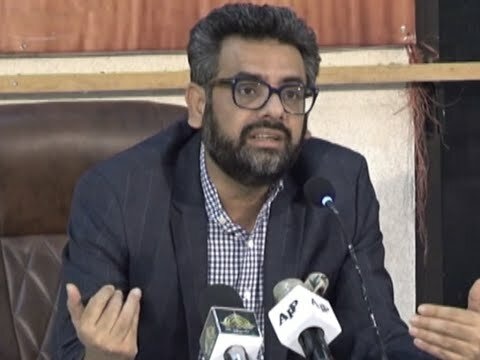Peshawar:Advisor to the Chief Minister of Khyber Pakhtunkhwa for Finance and Inter-Provincial Coordination Muzzammil Aslam, has stated that the recent media reports regarding the Khyber Pakhtunkhwa budget for the fiscal year 2025-26 are entirely baseless. He clarified that the Khyber Pakhtunkhwa Finance Department has not released any figures related to the upcoming budget.
In an official statement issued from his office, Mr. Aslam said that the budget figures for the new fiscal year will begin to surface in May. He further assured that, similar to the ongoing fiscal year 2024-25, the next budget will also be a surplus budget.
The Advisor emphasized that work is actively underway on the preparation of the upcoming budget, and it is premature to announce any final figures or dates at this stage. He added that, like the current fiscal year, the next budget of Khyber Pakhtunkhwa will be people-centric, development-oriented, and historic in nature.
In a separate statement, Advisor to the KP Chief Minister on Finance Muzzammil Aslam, has reacted to the wheat crisis in Punjab and Pakistan. He stated that the Chief Minister of Punjab has crippled the farmers, leading to record low wheat production this year.
Muzzammil Aslam highlighted that it is generally estimated Pakistan will need to import wheat worth $3 to $4 billion this year. He further said the economic exploitation and financial loss suffered by farmers across the country exceeds Rs 900 billion, with Punjab’s farmers alone bearing losses over Rs 600 billion.
Criticizing the Punjab government’s response, he said that Uzma Bukhari, who he referred to as the “drama theatre regulator”, has said that the farmers will get a compensation of Rs 5,000 per acre — an amount that doesn’t even cover the cost of a single bag of fertilizer or three days of a farmer’s wage.
He added that the government announced subsidies for about 500 tube wells to convert to solar energy, but once the farmers realized the actual costs, they neither bought tractors nor solar systems. He continued, “They claim the total subsidy is Rs 11.5 billion, yet the total farmer losses exceed Rs 600 billion.”
On top of that, Aslam criticized the government’s incentive scheme for high-yield wheat growers, allocating a mere Rs 100 million. “To put things into perspective, even a Rs 1 per 50kg increase in the wheat price amounts to Rs 500 million,” he said.
He accused the Punjab Chief Minister of favoring the elite through middlemen — announcing interest-free loans worth billions for flour mills and licensed grain holders, and agreeing to store their wheat in government warehouses with rent paid by the state.
Aslam pointed out that the Chief Minister herself has admitted that wheat should be sold once prices improve — which he claims is a clear acknowledgment that the current low-price narrative only serves to benefit middlemen at the cost of farmers.
He concluded by saying that good news for farmers will soon be announced by the Government of Khyber Pakhtunkhwa. “It should be remembered,” he noted, “that for the first time in history last year, the Khyber Pakhtunkhwa government directly purchased wheat from farmers.”




